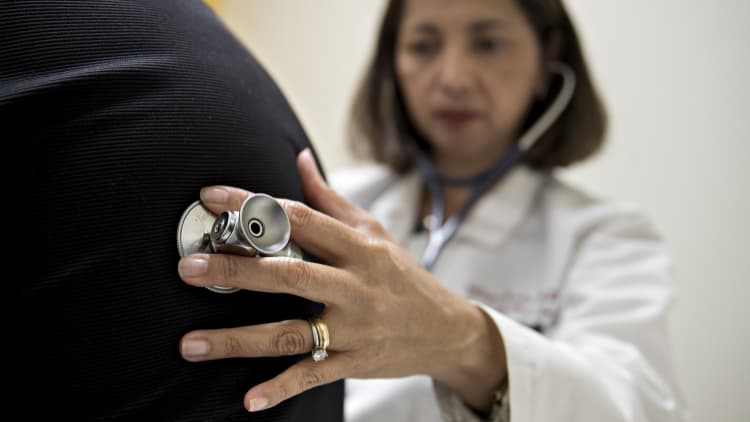
The Republican health-care bill passed by the House on Thursday is "tremendously problematic," Mt. Sinai Health System CEO Dr. Kenneth Davis told CNBC.
The legislation has yet to be analyzed by the nonpartisan Congressional Budget Office, which would have provided estimates of how many would lose coverage, how it will affect premiums and the cost to the federal government.
However, the CBO found the GOP's first bill would leave 24 million more Americans uninsured by 2026.
And those left without coverage are still going to be sick, David pointed out.
"They're still going to come to the hospital. And there are laws that stipulate, and our values equally stipulate, that we have to take care of those people," he said in an interview with "Closing Bell" on Thursday. "Where's the money going to come from?"
What's more, hospitals lost subsidies for uncompensated care under Obamacare because more people were being insured.
"Now 24 million people lose their coverage but that money doesn't come back. So we're in a very difficult situation," Davis said.
Meanwhile, the idea that cheaper policies will entice more people to get coverage also doesn't sit well with him.
That's because those policies don't necessarily mean better care, said Davis.
"Cheaper policies will make people not have coverage for very important things like prevention, like mental illness," he said. "We need all those things because in the long run they save money."
The bill now heads to the Senate, where it will likely face more skepticism. Davis urged the lawmakers to not cut Medicaid funding and to focus on prevention.
"We are not going to bring the cost of health care down unless we are better able to organize care, provide better value and do that by preventing illness," he said.


